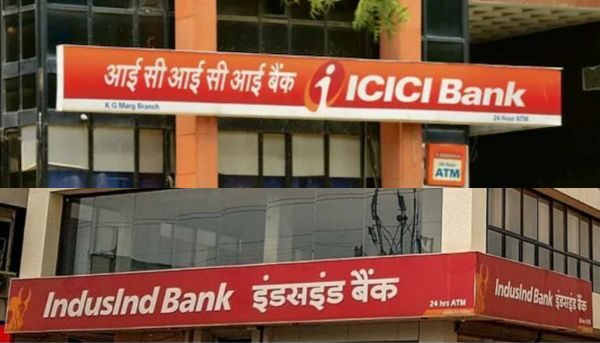In a situation drawing parallels with the 2018 ICICI Bank controversy, IndusInd Bank is now grappling with serious governance concerns after admitting to major accounting lapses related to its derivative transactions. The bank’s December FY25 net worth has taken a 2.35% hit, and market estimates suggest the financial impact could be between ₹1,500 to ₹2,100 crore. Yet, unlike the precedent set by Chanda Kochhar’s departure from ICICI Bank to ensure a fair investigation, the leadership at IndusInd remains firmly in place—raising eyebrows across the financial ecosystem.
The controversy stems from errors in the accounting treatment of derivatives, reportedly dating back at least seven years. Despite the scale and timeline of the discrepancies, there has been no offer to step down or take a leave of absence by senior officials. At the center of the storm is Arun Khurana, who currently holds the roles of Chief Financial Officer, head of global market trades, and Deputy CEO. His domain includes treasury operations—the very area implicated in the accounting lapses.
ALSO READ: “DFIR Capability Maturity Assessment Framework” by ALGORITHA
Also under scrutiny is CEO Sumant Kathpalia. Industry experts argue that as the bank’s top executive, the ultimate responsibility for oversight failures lies with him. Critics point out that even if the lapses weren’t directly under his watch from the beginning, the lack of prompt disclosure and corrective action falls squarely on his shoulders.
Investor sentiment remains jittery, especially after the bank’s March investor call failed to provide clarity on the depth of the issue. With Grant Thornton Bharat currently conducting a forensic audit and the findings of a previous review by PwC still under wraps, concerns are mounting over the transparency and credibility of the entire process. Reports indicate that the earlier audit by PwC may have been subjected to internal interference, casting doubt on whether current investigations will remain insulated from similar influence.
ALSO READ: Call for Cyber Experts: Join FCRF Academy as Trainers and Course Creators
More troubling, observers say, is the apparent passivity of the Reserve Bank of India (RBI) in the matter. Despite ₹4 lakh crore in public deposits being at stake, there has been no regulatory directive for a leadership change or even a temporary leave. This leniency, critics argue, could erode public trust not only in the institution but in regulatory oversight as a whole.
As the financial world awaits the findings of Grant Thornton’s audit, one thing remains clear: confidence in IndusInd Bank’s governance framework is at a crossroads. Stakeholders—ranging from investors to depositors—are demanding answers, accountability, and above all, action. Whether the management will rise to the occasion or continue to hold their positions amid growing scrutiny remains to be seen.


